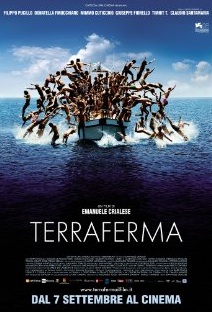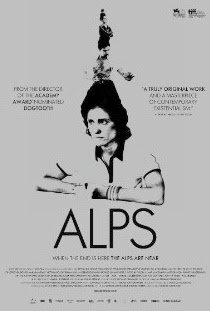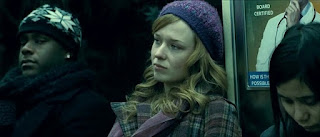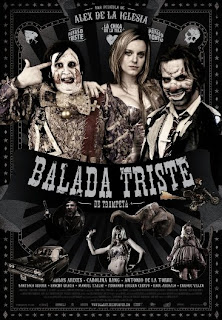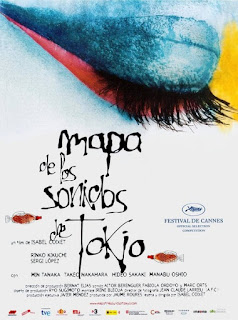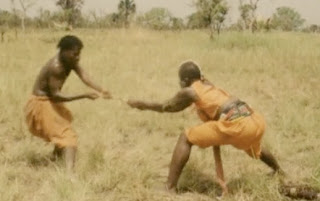The conclusion of the
2012 African Cup of Nations film spotlight. In the end, I was only able to view films from 10 of the 16 African nations that took part in the 2012 tournament.
Group A: 2 films
Libya:
The Message (1977, Moustapha Akkad)
A lavish production that balances the story and teachings of Prophet Mohammed along with the political struggle that took place in the name of religion. The prophet cannot be shown in front of the camera and that limitation does not take anything away from the film as characters address the camera and repeat the words they have heard from the Prophet, thereby continuing their dialogue with him. Also, there are some incredible scenes such as the moment when the first call to prayer is announced while the battle scenes leave no stone unturned in terms of production values. The film has a consistent feel which is remarkable given how the production had plenty of troubles eventually resulting in Libya offering to allow filming to be completed.
Senegal:
Madame Brouette (2002, Moussa Sene Absa)
A drunk man in a red dress walks into a home where a young girl and woman live. A few words are exchanged, a shot is fired, and the man stumbles out of the home and drops dead. A crowd gathers, a tv crew arrives and debates begin about what really happened. The rest of the film uncovers the events that led to that killing. A few soulful musical numbers are smartly integrated in the film and give some background to a character’s plight or feelings. Also, the music manages to lighten the overall mood of the film because the story depicts harsh realities of society, including corruption. The opening number (shown in the trailer), repeated at various intervals throughout the film, is memorable and appropriate in the film’s context.
Group B: 3 films
Angola:
The Hero (2004, Zézé Gamboa)
Vitoria (Makena Diop), a war veteran, anxiously waits at the hospital everyday hoping to finally get a prosthetic leg. Even though he is a decorated war hero, he struggles to find a job so he believes a prosthetic leg will finally help him rejoin the workforce. Unfortunately, his prosthetic is stolen shortly after he receives it and he has no chance to get a replacement. A few people try to help him recover his prosthetic leg including a local politician who misuses Vitoria’s situation to garner some votes.
The film is set in Angola but the issues related to the ignorance of war veterans apply to many nations where politicians are distant from the human cost of war. In such nations, politicians don’t think twice about sending their nation’s civilians to war but then are quick to turn a blind eye when these same soldiers return from war. Vitoria wears his uniform with pride but his uniform wears him down and ends up becoming a burden on him because he finds that his service to his nation means nothing to those around him. So it is not a coincidence that Vitoria is shown to be happy when he is not in his uniform. The absence of his uniform indicates that he has rejoined civilian life and his burden has been removed.
The name Vitoria is similar to that of Vittorio De Sica (
Bicycle Thieves) and that similarity is justified as Vitoria’s prosthetic leg is his ticket to employment like a bicycle is critical to a job in
Bicycle Thieves.
Burkina Faso:
Dreams of Dust (2006, Laurent Salgues)
Mocktar (Makena Diop) arrives in Essakane looking to work in a gold mine but he is told by a local that he has arrived almost two decades late as the gold has dried up. Still, the workers continue to work in the mine under the desert hoping to strike it rich. Mocktar hopes to put his past behind him in his new surroundings but he finds that the locals in Essakane are haunted by the past. Laurent Salgues manages to depict the state of the workers nicely by smartly mixing enough silent moments with appropriate expressions.
There is a moment in the film when a gold mine caves in, leaving the workers trapped underneath. Even though the camera never ventures into the mine, the accident has echoes of Yash Chopra’s excellent
Kaala Patthar (1979).
As an aside, it is remarkable that two films in this group feature Makena Diop in the lead. In both films, he perfectly depicts the right emotion required for his character.
Ivory Coast:
Adanggaman (2000, Roger Gnoan M'Bala)
Ossei (Ziable Honoré Goore Bi) is reluctant to marry as per his father’s wishes so leaves at night to go see his lover. While he is away, his village is attacked and everyone is taken as a slave, including his mother. Ossie manages to run away but decides to give himself up in order to save his mother. The story is based on true incidents related to slavery in 17th century when some African tribes captured other tribes and sold their prisoners as slaves overseas. The slaves that were kept alive and given enough food were ones that the captors felt could survive the long journey across the ocean. The brutal acts around slavery result in some powerful dialogues in the film such as
"The Whip will reign for a long time."
"Death lurks around us"
"Despair will shroud them, plunging them in horror."
Group C: 2 films
Morocco:
Le Grand Voyage (2004, Ismaël Ferroukhi)
A father wants to make the pilgrimage to Mecca so he asks his son to drive all the way from France to Saudi Arabia. The son is initially not happy with his father’s decision but gradually gains a better understanding of his father as the journey progresses. The film manages to stand out from a traditional road feature by incorporating some engaging elements, such as the mysterious Eastern European woman the duo pick up. The woman’s mysterious disappearance and reappearance fits in perfectly as does the predictable actions of the Turkish man the son befriends. The journey ends up becoming a metaphor for life and each experience helps broaden the son’s mind. The end point of the journey at Mecca features the film’s strongest & most emotional moment.
Tunisia:
Khorma (2002, Jilani Saadi)
Khorma (Mohamed Graïaa) is an easy going and friendly person but others around him often misunderstand him and look upon him suspiciously. In fact, others are just waiting for Khorma to slip up so that they can throw him into the fire. When circumstances result in Khorma making a mistake, the town waste no time in crucifying him. Yet, despite everything that happens to Khorma, he manages to shrug it off and dance freely.
Group D: 3 films
Botswana:
The Gods Must be Crazy II (1989, Jamie Uys)
Growing up, I thought the concept of
The Gods Must be Crazy was quite funny but unfortunately, I didn’t enjoy the same formula in the sequel. This formula features multiple stories spliced together with an unseen narrator describing the actions of the local tribe. There is a cartoonish element to
The Gods Must be Crazy II, highlighted by sped up frames, but the overall story is a weaker rehash of the first film.
Ghana:
Life and Living It (2008, Shirley Frimpong Manso)
Shirley Frimpong Manso’s
The Perfect Picture starts off with a marriage and looks at the quest of three friends to find a meaningful relationship in their lives. In
Life and Living it, Manso explores at issues that come after marriage, such as affairs, conflicts, divorce and custody battle over a child.
Mali:
Den Muso (1975, Souleymane Cissé)
Sekou, a young factory worker, wants to leave his job because after 5 years, he feels he has not made enough money. Even though his boss asks him to be patient, Sekou refuses to listen. Sekou turns out to be a womanizer and rapes Ténin, the boss’ daughter, and gets her pregnant. Ténin’s father disowns her because of the pregnancy as he believes she has brought shame to the family.
Den Muso (
The Young Girl) is Souleymane Cissé’s first feature film and starts off with a thoughtful black and white sequence which shows men working hard at a construction site. The opening sequence contrasts with the rest of the film because Sekou wants to progress in his job but refuses to put in the hard work required. In this regard, Cissé depicts some aspects of a younger generation that demands things instantly without putting in the required effort. Also, the film sheds a light on treatment of women in society by its depiction of Ténin.
Top 4 films
None of the 10 films ran away with the spotlight but a few films had some worthy moments. In the end, the following is the final preference order:
1) Burkina Faso,
Dreams of Dust (2006, Laurent Salgues)
2) Senegal,
Madame Brouette (2002, Moussa Sene Absa)
3) Morocco,
Le Grand Voyage (2004, Ismaël Ferroukhi)
4) Angola,
The Hero (2004, Zézé Gamboa)
There was no overlap with the final 4 of the soccer tournament:
1) Zambia: Their remarkable 8-7 penalty shoot-out win over Ivory Coast was emotional given that the victory took place in the same city where
members of the 1993 Zambian team were killed in an airplane crash.
2) Ivory Coast: They ended the tournament without conceding a single goal as the final ended 0-0. They won all their previous 5 games by a score of 1-0 (vs Sudan), 2-0 (vs Burkina Faso), 2-0 (vs Angola), 3-0 (vs Equatorial Guinea) and 1-0 (vs Mali).
3) Mali
4) Ghana








